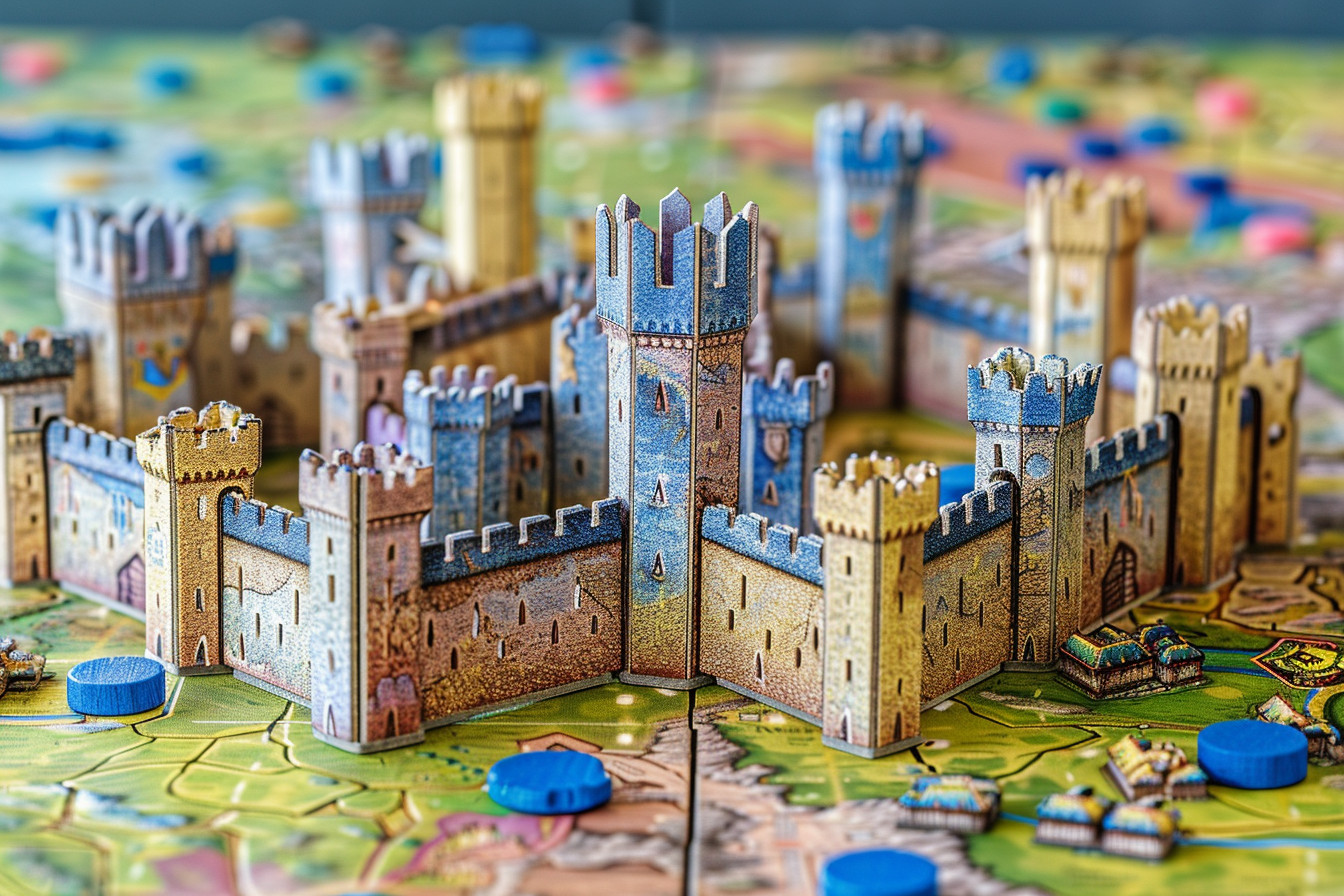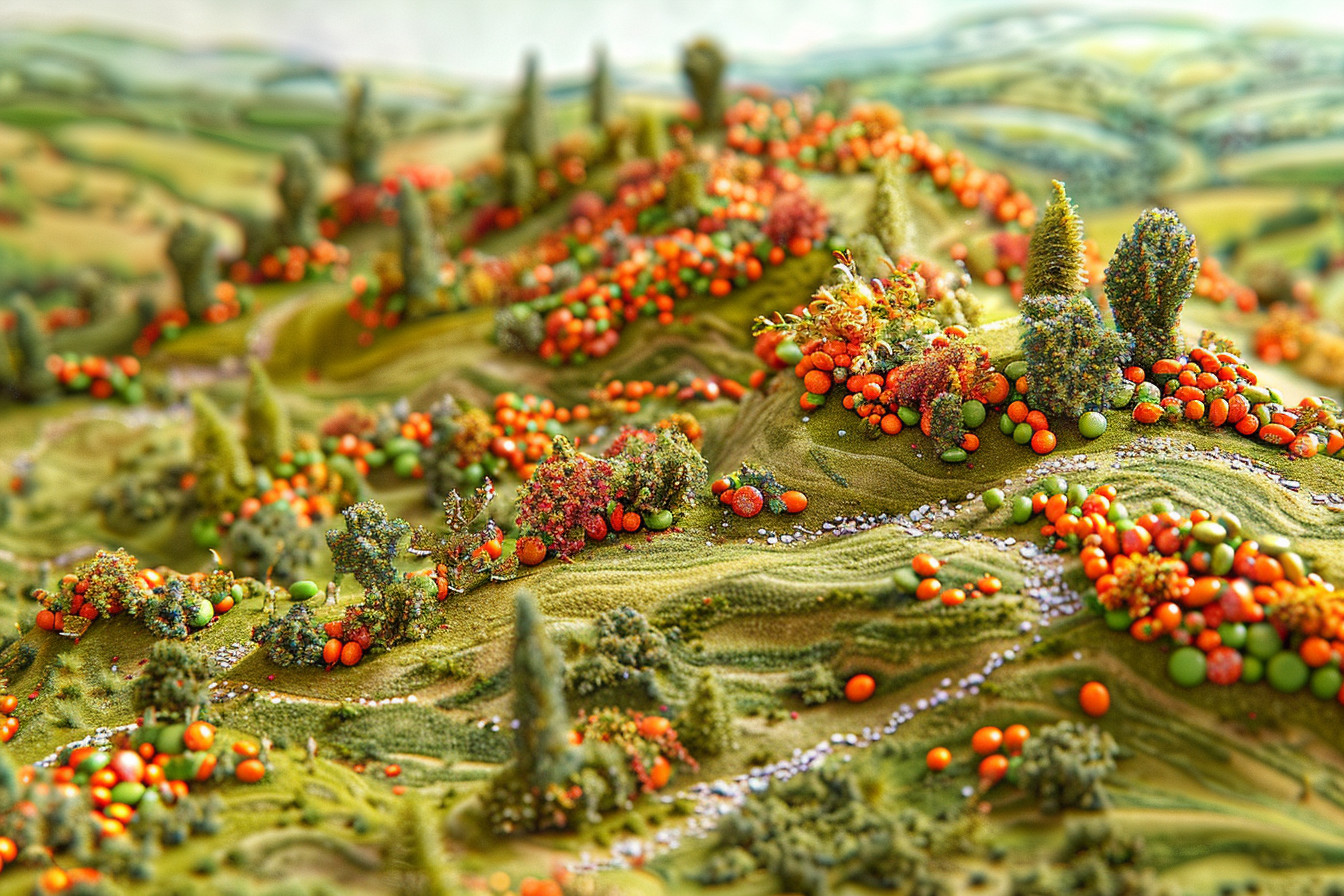7 Wonders was developed by Antoine Bauza, and it became a card-drafting civilization building game upon its release in 2010. This game is a mixture of strategy, resource management, and mental gymnastics under the backdrop of ancient civilizations all seeking to construct architecturally magnificent buildings and establish cultural superiority. Each player assumes the role of one of the seven wonders in the ancient world, trying over three periods–depicted by card decks of each age–to bring about his own civilization in history.
The first time I played 7 Wonders, I was struck by its simplicity and level of strategy. With the games only being quite short (in the range of 30 minutes for a full game), these decisions felt meaningful, not incidental and every decision was felt. Deciding which development to take is one of the most important aspects in this game.
That was spent at a game night, playing with friends who were relatively new to 7 Wonders. The pace of the game was fast and the player interaction high. As we built our wonders, designed strategies to get resources and so on, there was a lot of tension combined with excitement; by the finish we were all keen to play again. More specifically let’s play in different ways, by so doing learn from our initial efforts.
Each of the 7 Wonder cards comes in a package that has a basic design, which adds to its appeal as something that is easy to put on the table. Each player begins by selecting one of the seven wonder cards, which represent historically accurate wonders such as the Pyramids of Giza or the Colossus of Rhodes. Each of these cards has two sides named A and B; this means you can decide to play as certain wonders or not based on resource restrictions if you so choose.
Now separate the cards of each age into three decks. Whoever builds a structure first in each age gets the points for building it, and is that much closer to the goal of victory.
Each deck is composed of various structures that players can build. These include resource-producing buildings, scientific structures, military buildings, and commercial hubs. Players will be able to sell their resources later in the game.
Every card in the age I deck is worth points. In a standard game, each player receives seven cards from the age I deck. The remaining cards are placed aside for now.
The wonder boards are placed in front of each player, along with three coins to start with. Later in the game, coins can be used for a variety of purposes including buying resources and trading with neighbours. Make sure the decks for ages II and III are also shuffled and kept near at hand, ready to be dealt at the start of each new age.
The way to set 7 Wonders up (and this is definitely one of the fun parts of doing so) is to sit down to play with the anticipation of seeing which cards will be in your starting hand. Thanks to the variety of cards and their random distribution, the game’s design guarantees a novel experience each time you play. It’s also this diversity that makes the game so fresh and enjoyable, even after many plays.
On one occasion, when the family games night had come around again, I introduced 7 Wonders to them. My family are not serious (or “hardcore”) gamers, and the game’s staple format was designed to keep their attention–it allowed everybody to understand what was going on.
The Gameplay of 7 Wonders
The key thing that sets 7 Wonders apart is its gameplay. The game is divided into three ages, each of which has a deck of cards. In each age, every player is given one hand of seven cards, and selects one card from it. The remaining cards are then passed to the next player. Drafting is the core element in 7 Wonders. Players must make strategic decisions: they decide which cards to keep and which to pass along to their neighbors.
After players have drafted their cards, they reveal their chosen cards simultaneously while carrying out the accompanying actions–such “construct building”, “upgrade wonder” and “discard card for coins”. There are different card strategies for various types of players, some such as concentrating all military strength in one set, another for science development as per need with commercial as the focus. As this turn processing altogether then simultaneously executes the actions on each card, players have the sense that they are all participating equally – nobody has a chance to pull ahead just because others need take their turns learning moves in peace and quiet.
Resource Management is a significant feature of the game. To construct a building or wonder, players have to gather resources. Each wonder board provides a number of different resources and players can also acquire more resources by building structures that produce them or trading with their neighbors.
Trading is one such example where simple strategy is used. In connection with your needs, balance what you may offer as an inducement to others needs. There is very limited alliance if you can call it such
7 Wonders is notable for the way players interact with each other. The military conflict at the end of every age when players compare their military might against that of their neighbours adds more tension and excitement. Winning earns you victory points, while losing incurs penalties. This mechanic forces players to pay attention to what their neighbors are doing and not just concentrate solely on developing themselves.
In one particularly intense game, I aimed for a high-scoring scientific strategy, focusing heavily on scientific structures. Across from me, my neighbors were building up a formidable military force. The tension grew with each age end, both of us trying to outmanoeuvre the other. In the end, my science paid off for me; nevertheless (it was) a close game, and that rivalry made it all the more interesting.
Pros
7 Wonders It enjoys several advantages that underpin its long-term popularity. One of the most significant is the game’s user-friendly nature. Rules are simple to understand and the game play itself is quite logical-this appeals, especially to novices. Yet though easy in this respect, 7 Wonders offers a deep and involving experience of strategy that will hold even the most experienced gamer’s interest. I have played 7 Wonders with players ranging from complete newcomers to seasoned board game enthusiasts, and it has always been able to capture and entertain them.
Another one of the game’s attractions is its replayability. With so many card types and strategies to choose from, no two games are ever alike. Every session brings diverse challenges and shews that players go through different expressions of play technique time and time again. The variations in storyline keep the game live and vibrant, even after multiple sessions. This variability keeps the game fresh and exciting, no matter how many times you play.
A third point of interest is 7 Wonders simultaneous play. By having all players take turns at the same time, it keeps the pace of the game zipping along and minimizes down time. Players remain involved; whenever someone discards a card in order not to take any of their available options, they have to bear in mind how that decision might affect their own strategy. This draft mechanism also adds a new twist to game playing and yet another layer for participants to consider.
This game’s wide variety of objectives ensures that it remains interesting and challenging for all players. This flexibility allows players to respond to the cards they draft and their opponents’ actions. If you are playing a game to the end, but have decided its real chance has passed from the minute of its creation; then it becomes boring and unexciting. To balance the game’s deep flavor with this streamlined simplicity is a very clear responsibility.
One of 7 Wonders’ most outstanding features, however, is the level playing field it offers for all varieties of players. Some people use a strong developing commercial system to grow rich from the start and then switch to science for points or military later. A few others study this bit by bit, working out struggles between large calculating devices as their engines get stronger all along the line but ultimatley fail down upon its results.
A thing to watch out for when playing 7 Wonders is that the score can be complicated. The game has several different scoring criteria, for example military rewards, scientifically important hands, commercial buildings and so on. To someone new this may appear rather overwhelming and difficult to do without missing a step in the process. When playing for the first time, I have found that people need help with scoring before it is possible to get an accurate result.all points properly calculated.
For some players, the learning curve of the game itself can also be a barrier to entry. While the basic rules are easy enough to understand, getting really good at this game demands that you understand all of its cards, resources and strategies. An initial mistake might leave a new player’s game plan in ruins for turns on end. It takes several goes before you really begin to appreciate the layered depths hidden within each single session.
I have played countless games of 7 Wonders, each one offering new challenges and new insights. This ability to learn is vital in keeping the game lively.7 Wonders is a game with long-lasting appeal due to the ease of its rules and pace. Simple regulations keep newcomers in demand while the depth in strategy variety of cards provides experienced players with hours of entertainment.
Despite its minor draw backs, such as the complexity of the scoring symbol system and the possibility for a lack of player interaction, 7 Wonders has been carefully designed so that it offers programs that are balanced and easy to play no matter what one’s circumstances.
In sum, 7 Wonders is not simply a board game, it is an exciting tour of ancient worlds and a test for strategic thinking. It’s a lasting source of joy. Whether you are building the pyramids, advancing scientific knowledge or commanding your troops to victory on land–7 Wonders provides an invigorating and rewarding experience which sure to grip your attention.
If you haven’t had the excitement of laying down an ancient civilization yet, 7 Wonders is one that will keep you busy. With its emphasis not only on fun but also the study skills, wisdom and strategy employed in history and society, our highly recommended new acquisition of the game should bring some color to your life! Bring some friends together, shuffle the deck and embark upon your adventures with 7 Wonders. You will not be let down.








